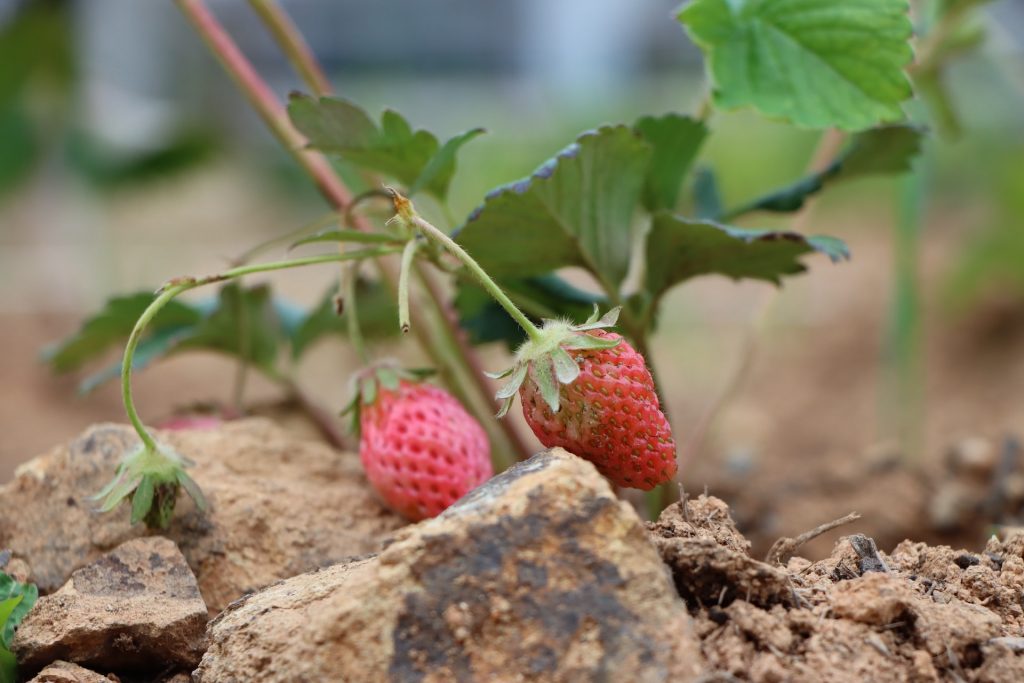South Korea is in the spring and summer flowering season, and the fragrance of flowers is overflowing. Theoretically, it should attract many bees to come to collect honey, but there are no bees. In the past two years, the problem of “missing bees” has become more serious. Only In 2022, more than 7.8 billion bees will die suddenly. The South Korean government has set up a special investigation team, hoping to find out the real reason.

(Photo via unsplash.com)
TAIPEI, TAIWAN (Merxwire) – South Korea is in the spring and summer flowering season. The flowers are gorgeous and fragrant. Theoretically, it should attract many bees to come to collect honey, but there are no bees. The food prepared by the beekeeper was not reduced in the bee box, and there was no obvious trace of bee colony activity. The problem of “missing bees” has become more serious. In 2022, more than 7.8 billion bees will die suddenly. The South Korean government even set up a task force to investigate, hoping to find out the real reason.
The problem of “missing bees” has been particularly serious in the past three years, leaving South Korean beekeepers at a loss. The research team infers that it may be related to pests and diseases. Environmental scientists believe that in recent years, the abnormal climate has intensified, making it impossible for bees to adapt, and air pollution has weakened the immunity of bee colonies, resulting in a large number of deaths. These are all important factors affecting the decline in the number of bees. The decrease in the number of bees will affect the growth of crops and plants, bringing unpredictable ecological crises.
In March this year, South Korea set a record for the highest average temperature in history. In spring, a hundred flowers bloom, but there are no bees. Statistics from the South Korean Beekeeping Association show that before the winter of 2022, there will be about 1.53 million bee colonies, but by the spring of this year, more than 60% of them died suddenly. Bear the brunt of the impact is the strawberry farmers. Due to the lack of bees to help pollinate, the fertilization of strawberries is incomplete, resulting in bearing fruit failure, deformed growth, and even direct rot, which seriously affects the quality of the strawberry harvest.
The research team initially deduced that the main factor affecting the ecology of bees is climate change. In addition to the abnormally high temperature, the mild winter last year made it impossible for bees to rest and grow in the cold winter. Because bees are temperature-changing animals, they will adjust their body temperature and carry out activities according to the temperature. When the weather gets hot, they will start to move and cannot rest. Therefore, the warm winter keeps them active and laying eggs continuously, and they cannot rest in winter as in previous years. The hot and cold weather makes it difficult for them to adapt, and the abnormally high temperature in spring makes the flowering season earlier, which also makes the bees maladaptive, and the nutrient supply chain of nature cannot be connected.
In addition to climate change factors, the investigation team found another fatal cause was “bee plague” after actual visits and scientific analysis. The pests and diseases caused by varroa destructors, cause a large number of bees to die. This reason is not accepted by most beekeepers, because varroa destructors have existed for a long time, and the number in recent years has not increased compared with previous years. It is difficult to understand why such a large number of bee deaths will result.
Environmental scientists believe that human factors may also be incorporated into consideration. Humans have caused serious air pollution. Too many suspended particles make the air turbid and light is easily scattered, thus affecting the ability of bees to find nectar. As a result, bees take longer to find the source of nectar, and the amount of nectar collected decreases, or even find nothing. This leads to a decrease in the immunity of the bees and thus a reduced resistance against varroa destructors.

(Photo via unsplash.com)
In addition, since 2016 in South Korea, more and more people have invested in the beekeeping industry, and the beekeeping density has surpassed that of China and India. The novice’s technology and experience are insufficient, and beekeeping is prevalent with sugar water instead of providing the nectar source trees needed by bees. As a result, bees suffer from malnutrition and insufficient immunity, are unable to tolerate environmental changes such as climate anomalies and air pollution, and their resistance to natural enemies varroa destructors also declines. Therefore, the sudden death of bees in large numbers during these 2 to 3 years has become more serious.
The main job of bees is “pollination”. There are more than 25,000 species of flowering plants in the world that require the assistance of bees to complete the “reproductive” work. According to statistics from the Food and Agriculture Organization of the United Nations, bees help pollinate 70% of food crops, and apples are one of them. Therefore, the reduction of bees will affect crop growth and the agricultural economy, and will also trigger a food shortage crisis.
Not only food crops, some plants will also be unable to sustain life due to the shortage of bees, which will affect the air purification and water conservation of the earth, and destroy the entire environmental ecology. Under the implication of the biological chain, some herbivores may also be unable to survive due to food lack. Once the bees disappear, food, ecology, and the economy will suffer major impacts, which will not only affect the daily life of human beings but also cause a serious imbalance in the ecological circle, triggering an unimaginable ecological catastrophe.
The World Meteorological Organization predicts that the El Niño phenomenon will restart, and we will face abnormally high temperatures and various climate anomalies. The Pacific Ocean water temperature rises due to the high temperature, which will affect the plant growing season and climate. The South Korean Meteorological Administration predicts that after summer, there will be heavy rainfall on the Korean Peninsula, which will knock down flowers, leaving the bees facing the dilemma of having no flowers to collect honey. Waves of existential crises will test the survival of bees and the future of the earth’s ecology.





